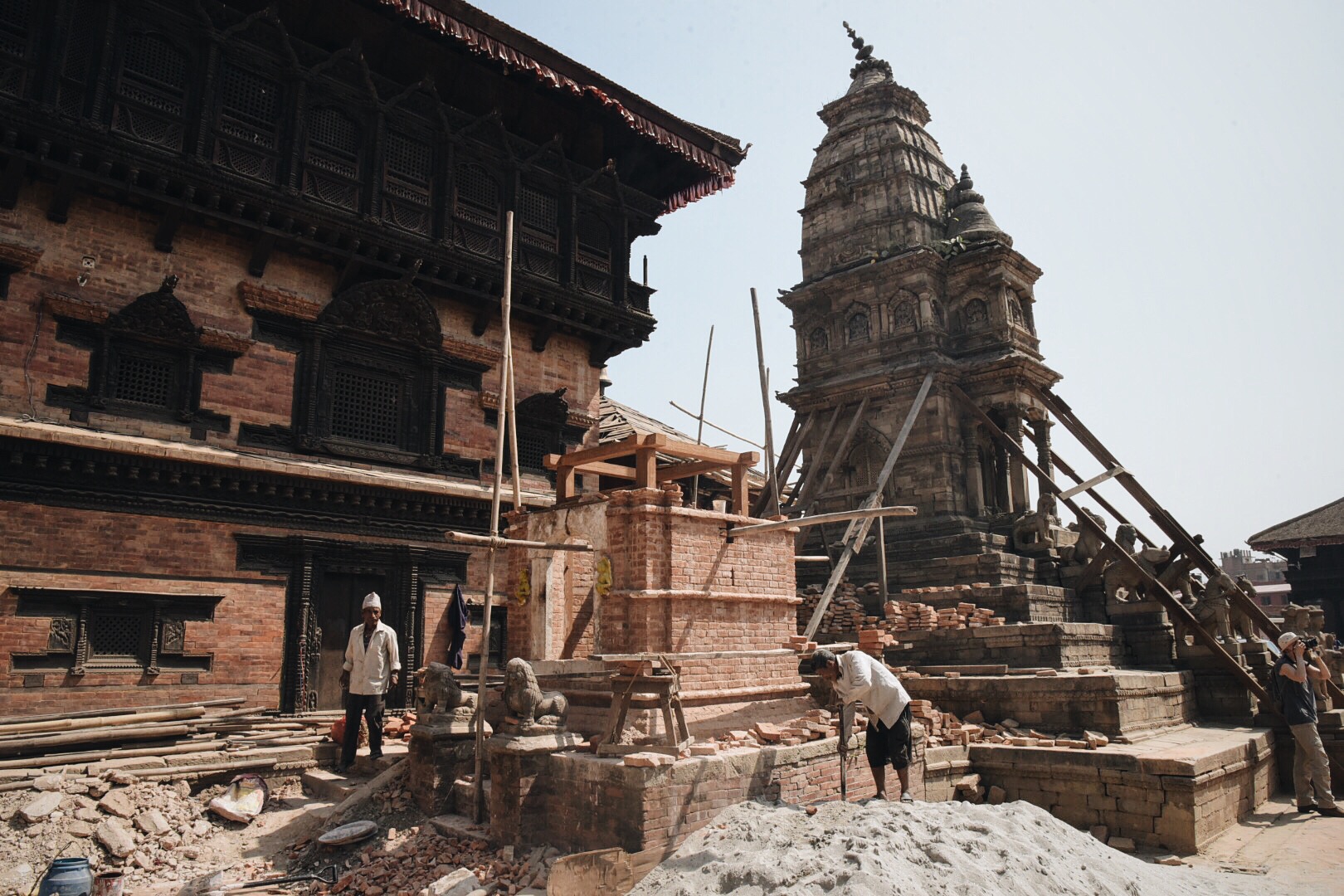The Government of Nepal and the World Bank signed three financing agreements for $440 million in Kathmandu to invest in the country’s post-earthquake housing reconstruction, livestock innovation, and technical education and vocational training.
The agreements were signed by Finance Secretary Shankar Prasad Adhikari and World Bank Country Director for Bangladesh, Nepal and Bhutan Qimiao Fan in the presence of Finance Minister Gyanendra Bahadur Karki and World Bank Vice President for South Asia Annette Dixon. Senior government officials were present during the occasion.
“These three agreements are important for Nepal because they boost job creation, including for many women, by investing more money in the country’s successful post-earthquake housing reconstruction as well as providing resources for the livestock sector and for youth skills training,” said Fan.
Under the first agreement, the World Bank will provide $300 million in additional finance for the Earthquake Housing Reconstruction Project. This will supplement a $200 million credit approved in 2015 in the immediate aftermath of the devastating earthquakes. From a preliminary estimate of 500,000 households in 2015, the total number of eligible and enrolled beneficiaries has increased to 650,000 households. The government has also since increased the housing grant to NPR 300,000 (approximately $3,000) per household from the earlier NPR 200,000 (approximately $2,000) to reflect increased construction costs. With these revisions, the financing gap in the government’s housing reconstruction program has widened to over $1.2 billion. The additional finance will help the government meet a slice of this gap.

The second financing agreement will support a Livestock Sector Innovation Project with a credit of $80 million. The project will support the objectives of the government’s Agriculture Development Strategy and its emphasis on livestock for sustained agriculture and economic growth, poverty reduction, and improving food and nutrition security. Nearly 200,000 livestock producers across 271 Municipalities will directly benefit from the project. At least 45 percent of the primary beneficiaries will be women. In addition, about 500 small and medium-sized agro-enterprises will benefit from production and post-production value chains.
The third agreement will finance a second phase of the Enhanced Vocational Education and Training Project with a $60 million credit. Between 450,000 and 500,000 Nepali youth come of working age every year, most of whom will enter either the domestic or the foreign labour market with limited education and skills. Technical Education and Vocational Training, or TEVT, is an important intermediary between youth and the labour market through the provision of pre-employment skills. While the number of formal and informal TEVT providers has grown over time, it continues to face the challenges of quality training for domestic and foreign labour markets, inclusion and cohesion. In its second phase, the project will help improve access to market relevant training programs and strengthen the delivery of TEVT.
During the signing ceremony, Fan congratulated the government and people of Nepal for recently concluding three historic elections. “We are very encouraged to see that these elections bring Nepal a step closer to operationalizing its ambitious goals of federalism. The road to fully functional federalism will be long and often challenging. But let me assure you that the World Bank will be with you at every step of the way,” he said.
Fan also noted that Nepal fully absorbed its allocation of concessional resources from the World Bank during the previous three-year cycle. This amounted to about $900 million and an additional $300 million from the Bank’s Crisis Response Window. During the current three-year cycle, which began last July, Fan said Nepal stands to benefit from a significant increase in allocation to about $1.4 billion. He said the Bank is developing a new Country Partnership Framework for the next four-year period beginning in July in consultation with Nepali authorities and a wide range of stakeholders.
Original source: World Bank
Published on 21 January 2018

